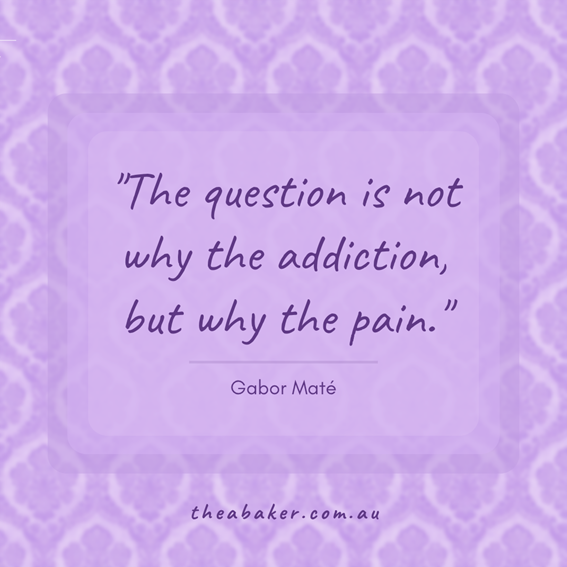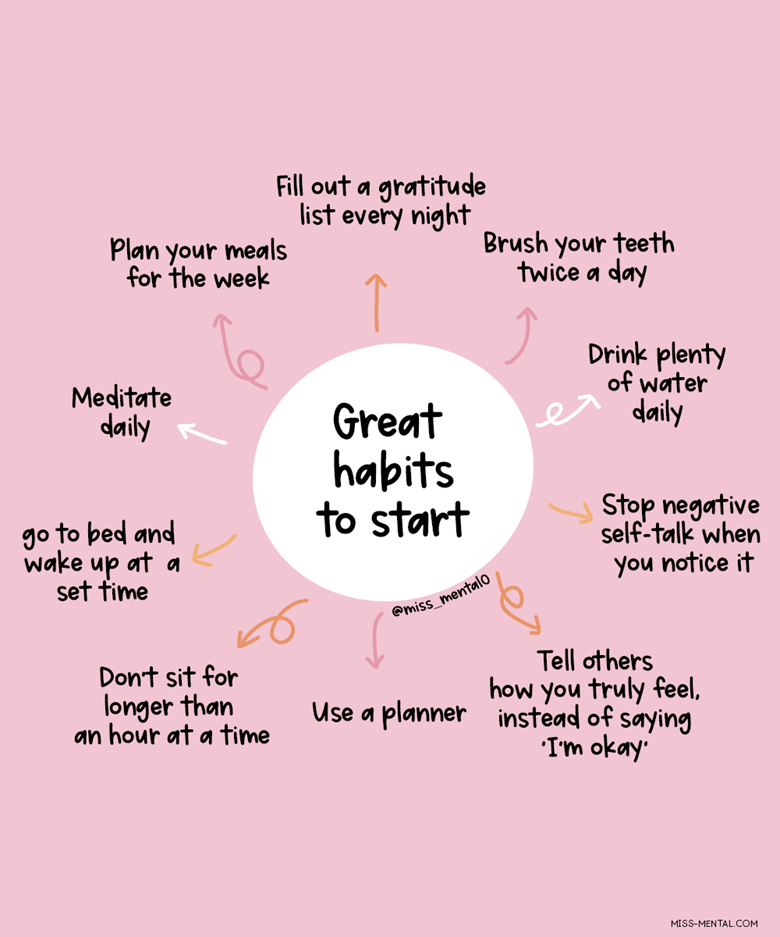Life-enhancing habits
Life-enhancing habits
This week is a very practical break from all the talk of feelings / emotions (don’t worry, we’ll get back to that next week!) because in amongst all the trauma process work it’s actually super important that we pause to develop new and different ways of doing life. Let me explain my thinking… When we’re working through different distressing experiences with their associated negative beliefs that we hold about ourselves, other people, or the world around us, we quickly learn is that we then have to figure out how to live our lives differently – which usually requires us to figure out a set of new, more adaptive or life-enhancing habits. And that can feel really quite weird and clunky because we’ve usually not had the space or capacity to consider habits like these because trauma causes us to rely on approaches to living that are focused on survival.
Now upfront I want to stress that when you read the research around this the term most frequently used (and you’ll see this from the quotes I’m sharing this week on social media) is ‘healthy habits’ which I’ve deliberately tried to avoid using because it suggests that what we’ve been busy choosing are ‘unhealthy habits’. That suggestion irritates me because it feels super judge-y and ignores that people who living with unresolved trauma have often learned to rely on things that help numb feelings that are too hard and painful (like reliance on alcohol or other substances), finding creative ways to feel some sense of control around life (such as disordered eating behaviours) or just avoidance-type behaviours (think gaming or doom-scrolling on socials). Whilst we are living with trauma, all behaviours that might be considered ‘unhealthy’, are actually really adaptative approaches of living with pain. Sure, they might come with some extra challenges that in the long-run aren’t great for our physical and mental health but in the messy phase of survival they’re our very valid attempt at living with pain. So no judgement here.

Having said all that, there does come a time when we all need to look at our habits to see how we might be able to tweak them to become more life-enhancing because this helps underpin our shift away from our trauma. I recently heard a journalist for the BBC interviewing an obesity researcher and I was surprised by the affirming and non-judgemental perspective that the researcher took. Essentially, they suggested that our bodies and nervous system that have evolved to keep us as humans alive for all these years was not designed for a world that includes fast-food, takeaways and processed foods. The researcher implied that for many people we are asking their body to exist in a world where a lot of our easily accessible food is toxic. It got me thinking about how far this perspective could be expanded to consider many different parts of our modern world as essentially toxic to our physical and mental health – how many of us (me included) have jobs that involve sitting on our bottoms and not being physically active as part of our daily functioning, mobile phones/social media/technology more broadly, access and normalisation of alcohol consumption…
If we come from the perspective that the world that we live in is toxic for us all at some level then I hope it takes the blame away from us as individuals making poor choices. Again, coming from this very non-judgemental perspective I started creating a list of all the different parts of our lives where we could explore whether we could make different choices:
- Food (what we eat, where we eat, who we eat with, relationship with)
- Substance use (alcohol, smoking etc.)
- Sleep hygiene
- Relationships (boundaries, connection)
- Physical activity
- Relaxation / stress management practices
- Technology (screen-time, social media engagement, gaming etc.)
- Time in nature
- Hobbies (having some, doing new ones)
There are probably loads more, but the approach might be looking at this broad list and coming up with specific life-enhancing habits (LEH’s) that might support you living life better. There are lots of different ways that you could approach implementing these – I’ve got my own rough and ready approach which is to avoid perfectionism and to aim to do 80% of my LEH’s, 80% of the time. Other people like James Clear in Atomic Habits (amazing book – read it!) have other wonderful things to say about habits. The important thing is to sit down and take a bit of an inventory of the things you could do differently that might help support your growth – because when we do differently it helps our brain grow new neural pathways that help strengthen our healing.
Oh, and one more practical suggestion – go listen to this episode of The Imperfects podcast with Dilruk Jayasinha (click HERE) where Dilruk shares a bit about his own experience of therapy, behaviour changes and relationship with food and alcohol in amongst it. Such a beautiful and vulnerable share.

If you’d like some support to develop some of your own life-enhancing habits, please get in touch with us: www.theabaker.com.au / hello@theabaker.com.au / 03 9077 8194.
